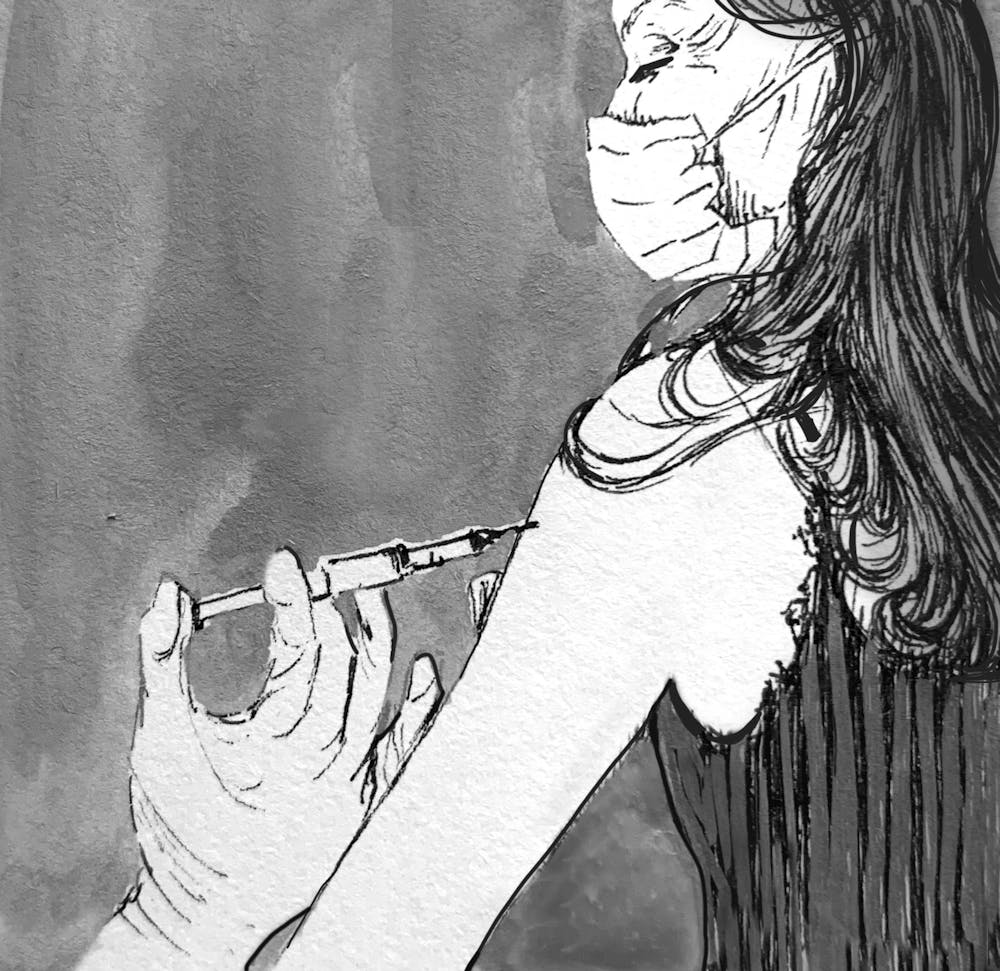Over 90% of adult Rhode Islanders have received at least one dose of a COVID-19 vaccine, according to an Oct. 25 announcement from Gov. Dan McKee and the Rhode Island Department of Health, making Rhode Island the second state in the country to reach this milestone.
As of Tuesday, 91.3% of the state’s adult population — those 18 years of age and older — is at least partially vaccinated, and 83% of adults are fully vaccinated. Overall, 78.4% of the state’s residents are fully vaccinated, as children ages 12 through 17 were granted eligibility for vaccination later than adults. The approval process for children under 12 is still underway, but vaccine rollout in this age group could begin soon following an emergency use authorization from the Food and Drug Administration on Oct. 29 and a formal endorsement from the Centers for Disease Control and Prevention of the Pfizer-BioNTech vaccine for children ages 5 through 12 Tuesday.
McKee set the goal of vaccinating 90% of the state in May. As of Tuesday, Rhode Island has the second-highest rate of vaccination in the country, following Vermont.
“This is great news,” said Philip Chan, medical director of RIDOH and associate professor of medicine and behavioral and social sciences at the University. “Rhode Island has been a leader when it comes to vaccinations for COVID. This is a big step,” he said, adding that continuing to vaccinate the public is the key to ending the pandemic.
Chan commended public health leaders across New England and pointed to them as reasons the region has such a high vaccination rate. As of Tuesday, the five states with the highest vaccination rates are all in New England, which is not a coincidence, Chan said. He also said “the people in (Rhode Island) have been receptive” to the vaccine.
Chan added that the state’s vaccine mandate for healthcare workers and other vaccine requirements have played a role, pointing to vaccine education efforts from RIDOH and the University.
Despite the milestone, Chan noted, “some caution is still due.” Although “vaccines are incredibly effective,” and college students are at a very low risk of developing severe complications or symptoms from COVID-19, he added that there is some waning immunity with vaccines. Rhode Island is “still in the ‘high’ transmission category for the CDC,” with over 100 cases per 100,000 people in the last seven days.
Skylar Iosepovici ’22.5 said even though she felt “pretty comfortable” before the milestone was reached, she feels much more comfortable knowing that vulnerable populations such as the elderly are now in a “much safer” position with so much of the community vaccinated.
Ty Scott ’22 said that upon seeing the 90% partial vaccination rate, he was “very excited.”
“I am still wearing masks, still washing hands before I eat and still carrying hand sanitizer around,” he said about his level of caution. “I feel slightly more safe to maybe eat dinner with friends who I haven’t seen in a while.”
“When you can do things outside, you should,” Chan added. “If you do not have to attend a larger gathering, you probably shouldn’t. If you are indoors, in a more crowded space, consider wearing a mask.”
Chan added that RIDOH will still continue to encourage vaccination. Despite the high vaccination rate, he said, there are still racial and socioeconomic disparities in which populations are vaccinated. RIDOH will continue to run testing sites and vaccination sites while emphasizing the importance of receiving the vaccine, he said.
Correction: A previous version of this article stated that 78.4% of Rhode Island residents are fully vaccinated. In fact, at the time of publishing, 71.4% of residents were fully vaccinated. The Herald regrets the error.





